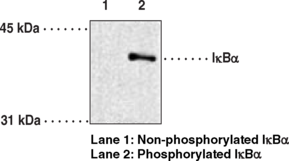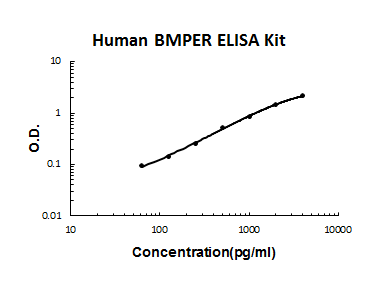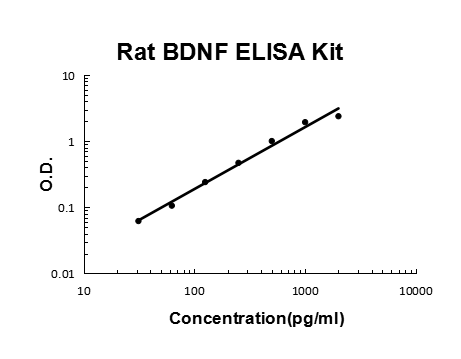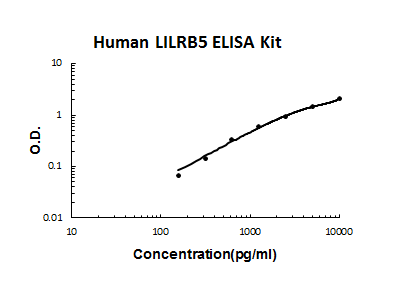Description
Antigen: synthetic peptide containing phosphorylated serine residues corresponding to human IκBα amino acids 32 and 36 • Host: mouse, clone 39A1413 • Isotype: IgG1κ • Cross Reactivity: (+) bovine, canine, human, mouse, porcine, and rat IκBα • Application(s): WB and IP • External stimuli such as tumor necrosis factor or other cytokines initiates a signal transduction cascade that leads to activation of the IκB-kinase complex that specifically phosphorylates IκBα on serine32 and serine36. Phosphorylation of these sites leads to ubiquitination of IκBα and subsequent degradation by the 26S proteasome. Degradation of IκBα results in unmasking of the nuclear localization signal of NF-κB dimers, which subsequently translocate to the nucleus and activate target genes.
Synonyms:
Immunogen: synthetic peptide containing phosphorylated serine residues corresponding to human IκBα amino acids 32 and 36
Formulation: 100 µg of protein G-purified IgG in 200 µl PBS containing 0.05% BSA and 0.05% gelatin and 0.05% sodium azide
Isotype: IgG1κ
Applications: WB and IP
Origin:
Stability: 180 days
Application|Immunoprecipitation||Application|Western Blot||Product Type|Antibodies|Monoclonal Antibodies||Research Area|Cell Biology|Cell Signaling|NF-κB Signaling||Research Area|Cell Biology|Proteolysis|Ubiquitin/Proteasome System||Research Area|Epigenetics, Transcription, & Translation|Transcription Factors||Research Area|Immunology & Inflammation




